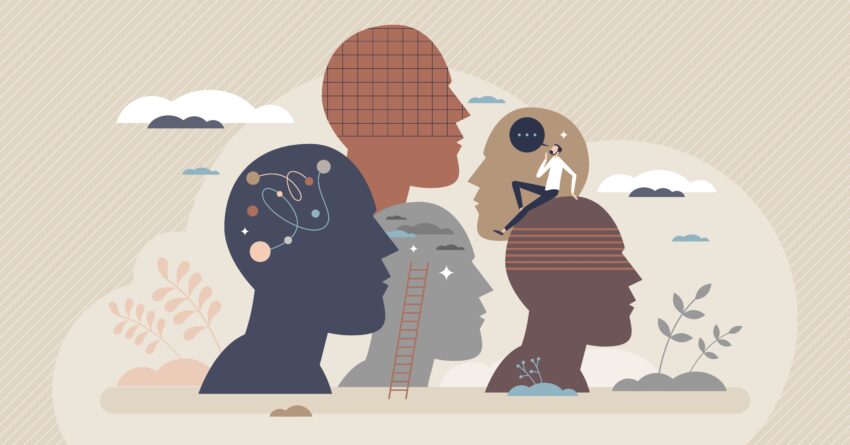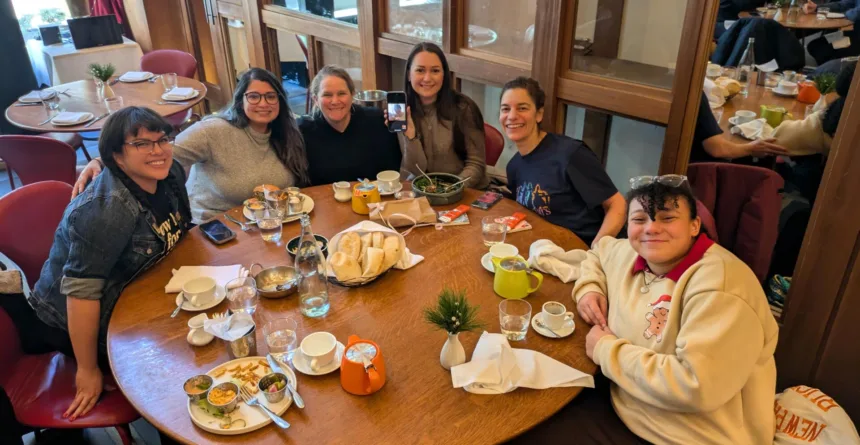What is Neurodiversity Affirming Therapy
April 4, 2025

“I thought I was crazy/stupid/lazy/broken.”
I can’t count the amount of times I have heard these words, even from the sound of my own voice. The idea that normal is right, and different is deficient, has been deeply ingrained in our language, culture, education system, and even in the institution of psychology. This is wrong. Period. Different is not deficient. Differences bring value. This is not to minimize the real challenges that, of course, exist for many of us Neurodivergent people. It is important, though, to contextualize these challenges and understand that what goes along with them is so much good.
What is neurodiversity?
Neurodiversity, coined by Judy Singer in 1998, is the concept that there is natural variation in the human brain that leads to differences in how we think and behave. When we understand this as the definition, we can then understand that to be Neurodivergent (as opposed to Neurotypical) can mean any number of cognitive differences. While we often associate the term Neurodivergent with Autism and ADHD, it can apply to a wide range of cognitive differences including dyslexia, dyscalculia, tourettes, and many other mental health disorders including OCD, CPTSD, Bipolar, and more.
Masking
This deeply ingrained notion that difference is deficient can have a high cost to our sense of self and our physical and mental well being. Many folks come into therapy after (consciously and unconsciously) suppressing their natural tendencies, which we call Masking. This protective coping mechanism is a double edged sword, often resulting in internalized shame, ableism, being disconnected from one’s body and sense of self. Many of such folks experience a range of dissociation and other symptoms associated with complex PTSD, higher rates of anxiety, depression, eating challenges, substance misuse, and suicidality.
Unfortunately, traditional therapy has not been neurodiversity-affirming. The medical model of disability, which our DSM and diagnoses are based on, is deficit based, it talks about what a person cannot do and cannot be. Under this model, neurodivergence is thought of as something that needs to be fixed. Neurodiversity advocates have been pushing back against this notion. For example, the Autistic community has challenged the appropriateness of ABA (Applied Behavioral Analysis) therapy, which is often used to mask Autistic traits such as stimming, even though those behaviors are often used to help one self-regulate and cope.
Social theory of disability
Social theory of disability, as opposed to the medical model, posits that disability is the interaction between people who live with impairments and their environment filled with physical, attitudinal, communication, and social barriers. For example, living in a wheelchair, in a world designed not for wheelchairs, your level of ability is very different than if you lived in a world that was designed with you in mind. Social theory of disability seeks to change society to accommodate persons with disabilities, rather than change people to accommodate society.
This diversity framework, utilized by the neurodiversity and broader disability movement, encourages pride in diversity and helps us heal from the idea of different equals deficient.
Neurodiversity Affirming Therapy
A neurodiversity affirming therapist recognizes that neurodivergence is not a flaw that needs to be fixed or corrected, rather, they recognize that neurodivergence comes with its own set of strengths that can be fostered. Neurodiversity affirming therapy is not a specific modality, nor a specific set of interventions. Rather, it is an approach and philosophy in how a therapist views and contextualizes a client’s experience. Much like how trauma informed therapy recognizes the unique impact of trauma on an individual’s experience.
Neurodiversity-affirming therapy:
- Holds the belief that each client, no matter their differences, is the expert in their experience.
- Is collaborative and client centered, allowing clients to determine the goals and direction of therapy.
- Helps to excavate internalized shame and promote resilience.
- Explores cultural narratives and one’s relationship to them.
- Is strengths based, and its goals honor and respect the differences of neurodivergent folks in communication, interaction, sensory, and emotion regulation needs.
You are brilliant, hard working, worthy, and whole.
It is the prejudice, misunderstanding, and harmful cultural ideas that so often go unchallenged that is what’s wrong–not you. It is institutionalized ableism that is the problem, not folks with differences or disabilities. And we, as a community, have an ethical obligation to change our environments, to accommodate and include–not remediate–folks with differences.
Finding the social theory of disability, finding our people, communities who share similar experiences, reflecting on feelings of shame with this new understanding, can be empowering. It allowed me to embrace the fact that there is nothing actually wrong with me, and reprocess trauma in an empowering way. Unmasking, under this paradigm, helped me reconnect with my body and regain my sense of self.
If you or someone you know needs support navigating intersectional identities and mental health challenges, contact us to set up a free phone consultation.



